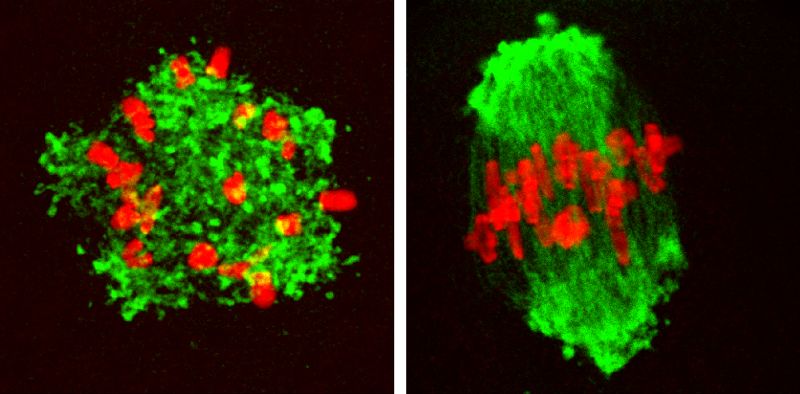
Laboratory of Biochemistry and Molecular Biology of Germ Cells
Laboratory of Biochemistry and Molecular Biology of Germ Cells
Head of laboratory:
Andrej Susor, Ph.D.
 |
|
Laboratory video (EN subtitles)
Download links: video and English subtitles.
Research interest:
We are focused on the molecular mechanisms which regulate the physiology and pathology of mammalian oocytes and embryos.
Gametogenesis and embryogenesis are the key events in sexual reproduction. In the female, meiosis results in a large cell that is competent for fertilization and fundamental for supporting early embryonic development.
One of the major problems occurring during mammalian meiosis is the high incidence of errors. These can lead to chromosomal aberrations which are more prevalent in female gametes and seem to increase with maternal age. Oocyte aneuploidy has severe consequences including pregnancy loss and birth defects.
To address these issues, we are concentrating on two major areas of research:
Intracellular Venues of mRNA translation
An important characteristic of oocyte and embryo development in mammals is the dependence on the translation and utilization of stored RNAs and proteins rather than de novo transcription of genes in order to sustain rapid development. In the absence of transcription, the completion of meiosis and early embryo development in mammals relies significantly on maternally synthesized RNAs. Therefore, the regulation of gene expression is controlled almost exclusively at the level of mRNA stabilization and translation.
We discovered that the RNA distribution in this large cell type indicates the presence of a novel set of regulatory mechanisms needed to ensure that specific gene expression occurs at the right time and in the right place. This contributes to spindle and chromosome organization and thus also plays an important role in the maintenance of genomic stability. Our studies suggest spatio-temporally regulated translational control by the mTOR/eI4F pathway during oocyte and early embryo development. Our projects investigate the translational components that are potentially clinically relevant targets for the development of a healthy oocyte able tosustain embryo development.

Regulation of the activities of the most important M-phase protein kinases
Progression through both mitotic and meiotic cycles is controlled by the sequential activation and inactivation of a set of different protein kinases and phosphatases, which play a critical role in the regulation of a large number of important events occurring in the cell during division. Our research team aims to uncover the changes in timing and the degree of activation of the M-phase protein kinases which are essential for meiotic cell division in the mammalian female germ cell (oocyte) and embryo.
Currently our lab is predominantly focused on the study of protein kinases which are involved in translation during oogenesis and embryogenesis. This includes the kinases needed for the regulation of the Cytoplasmic Polyadenylation factors which play pivotal roles in the control of specific mRNAs through 3’ UTR. Recently, we revealed that Aurora A kinase activity is not important for this process in mammalian oocytes, although it may be more influential in lower organisms. This suggests that some other kinases must be involved, and it is the nature of these kinases which is central to our studies.






